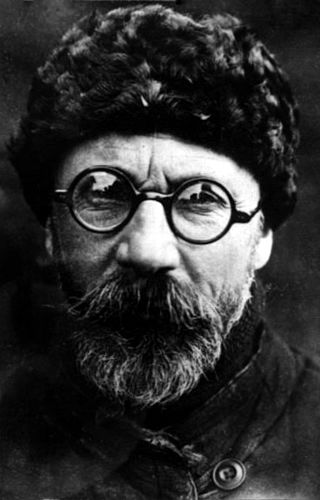Top Qs
Timeline
Chat
Perspective
Leonid Kulik
Russian mineralogist (1883–1942) From Wikipedia, the free encyclopedia
Remove ads
Leonid Alekseyevich Kulik (Russian: Леонид Алексеевич Кулик; 19 August 1883 – 14 or 24 April 1942) was a Soviet mineralogist who is noted for his research into meteorites.
This article needs additional citations for verification. (May 2007) |
Remove ads
Russo-Japanese War and World War I
He was born in Dorpat,[1] (now Tartu, Tartu County, Estonia), and was educated at the Imperial Forestry Institute in Saint Petersburg and the Kazan University. He served in the Russian military during the Russo-Japanese War, then spent some time in jail for revolutionary political activities. He then served with the Russian military during World War I.
Mineralogy teacher
Following the war he became an instructor, teaching mineralogy in Tomsk. In 1920 he was offered a job at the Mineralogical Museum in St. Petersburg.
Investigation of the Tunguska event
In 1927, he led the first Soviet research expedition to investigate the Tunguska event,[2][3] the largest impact event in recorded history, which had occurred on 30 June 1908. He made a reconnaissance trip to the region, accompanied by Nikolay Ivanovich Fedorov and others, and interviewed local witnesses. He circled the region where the trees had been felled and became convinced that they were all turned with their roots to the center. However he did not find any meteorite fragments from the impact.
World War II service and death
During World War II he again fought for his country, this time in a paramilitary militia. He was captured by the German army and died in a prisoner of war camp of typhus.[4]
Honors
- Asteroid 2794 Kulik is named for him.
- The crater Kulik on the Moon is named after him.
References
External links
Wikiwand - on
Seamless Wikipedia browsing. On steroids.
Remove ads

